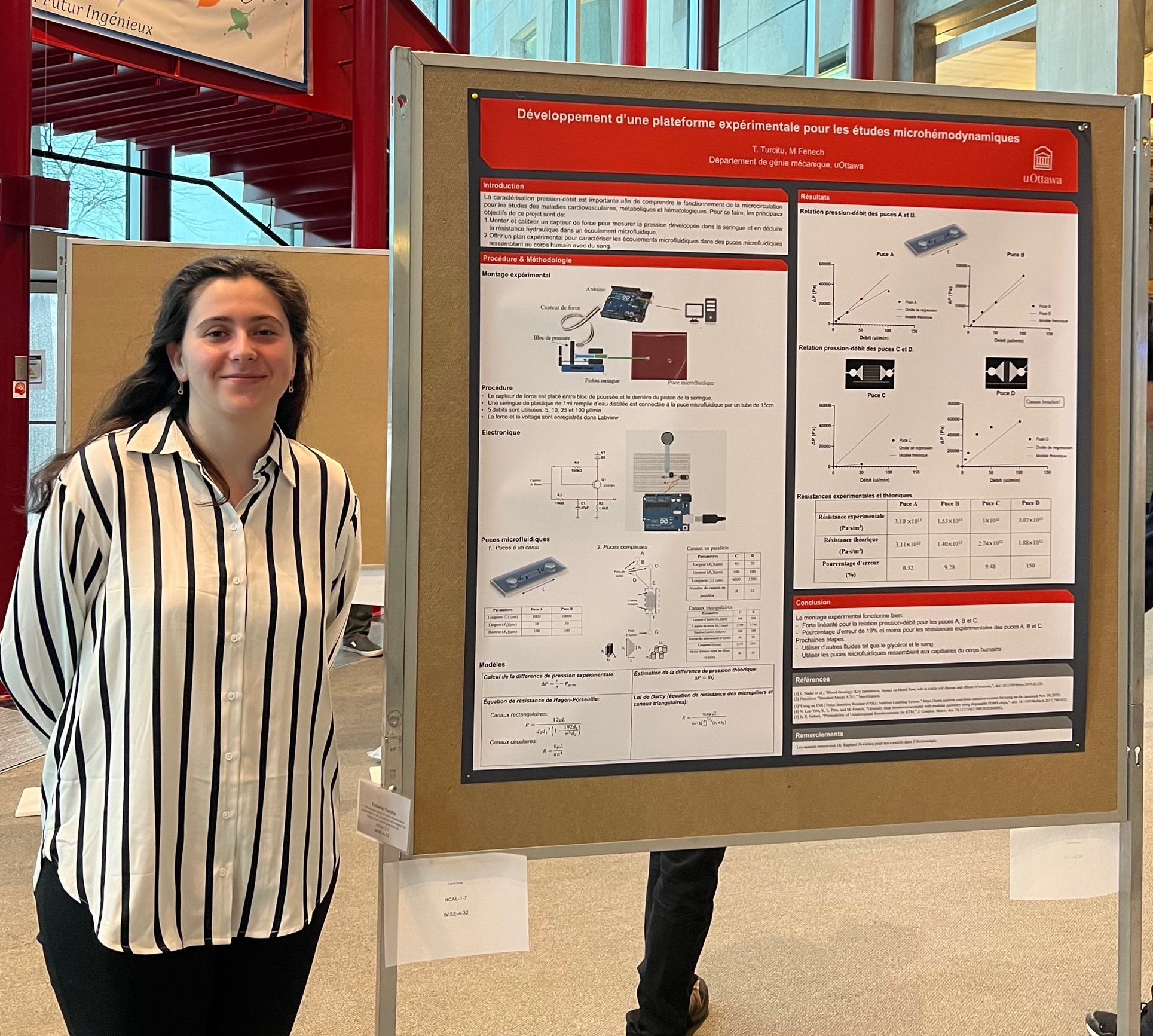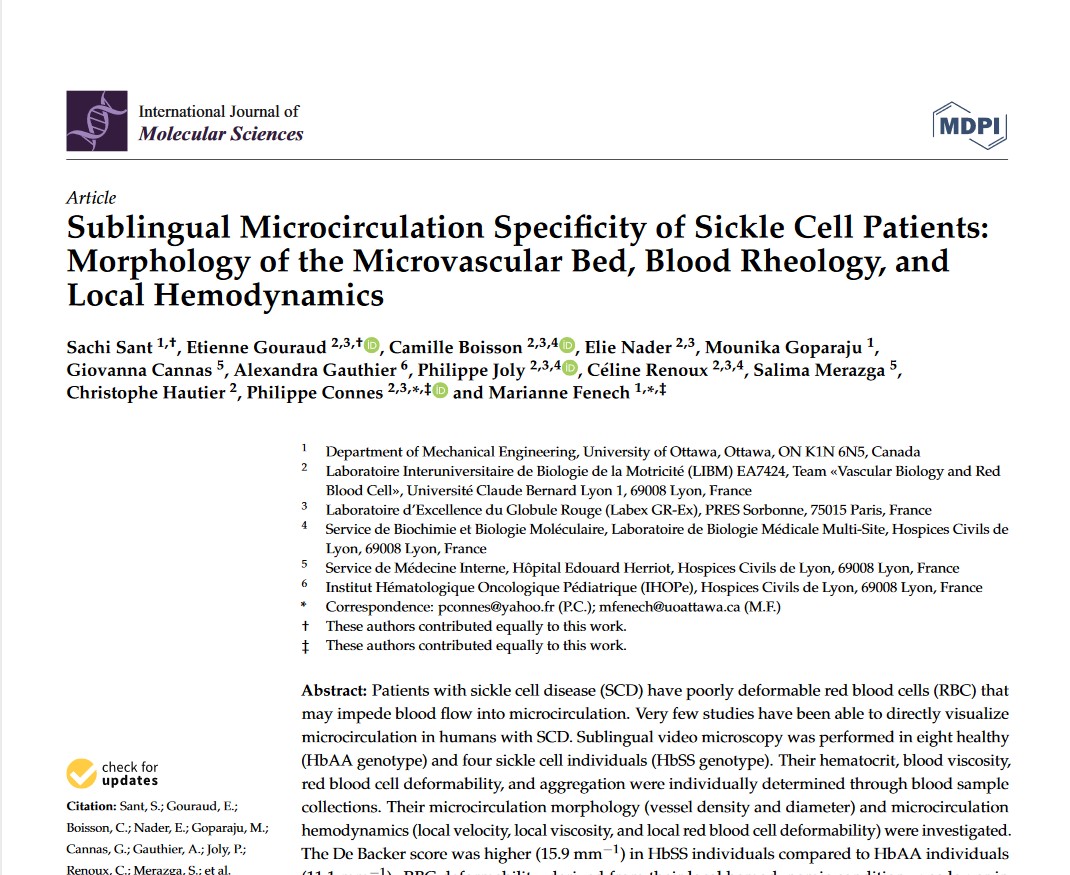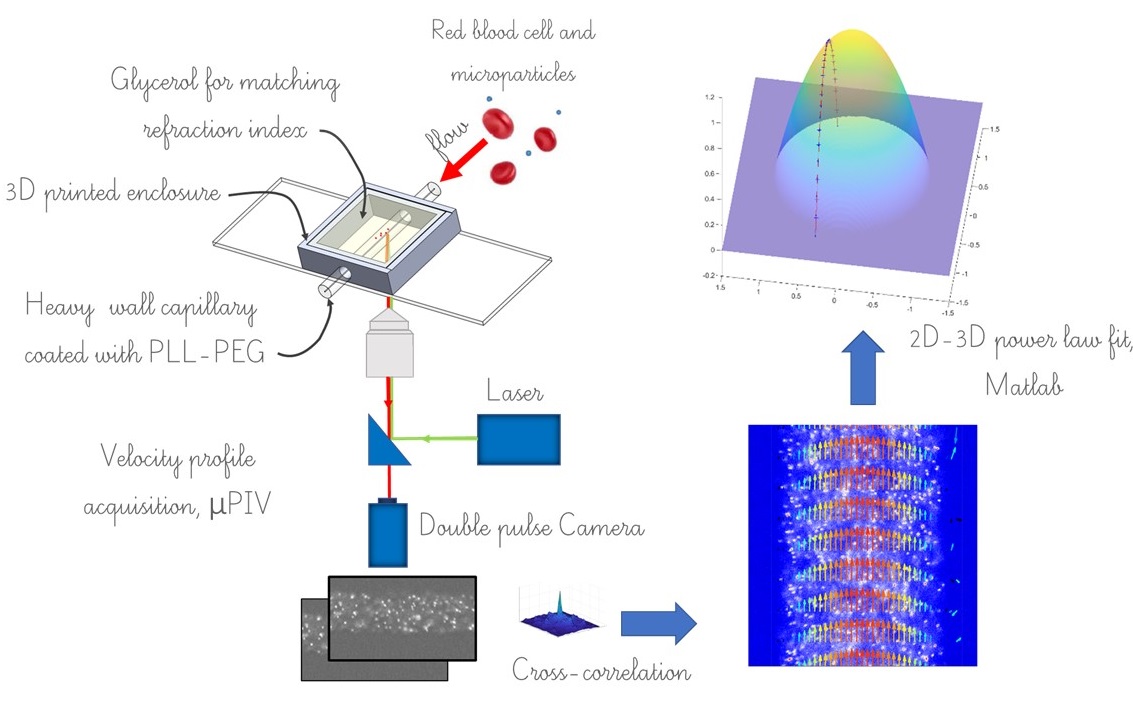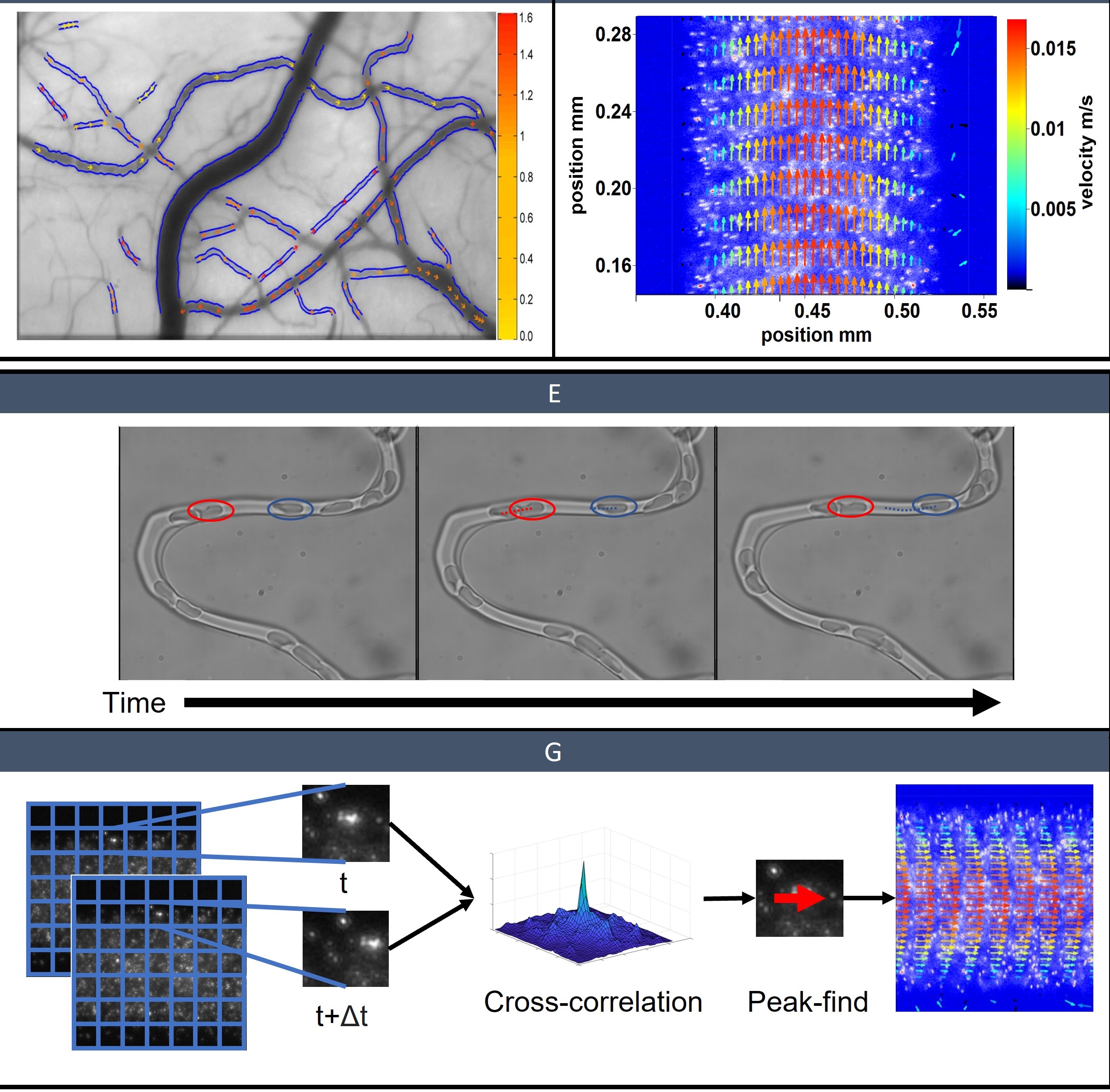Fenech's lab
Research
our interests
Blood behaviour in microcirculation cannot be considered as a liquid flow, but rather as a collection of interacting particles, the study of blood flow in microcirculation represents a considerable challenge both in experimental measurements and for the development of global mathematical models. In particular, red blood cells (RBC), which are the most numerous cells found in the blood (40% of the blood volume), may adversely affect blood viscosity. When blood cells are too abundant (Erythrocytose, Hyperleukocytic leukaemias…), less deformable than healthy cells (Sickle cell disorders, Haemolytic anaemias, falciparum anaemia…), or if they tend to aggregate abnormally (observed in a variety of clinical states such as trauma, shock, burns, infections, complicated diabetes mellitus, malignant and rheumatic diseases), microcirculation can be altered leading to various health-related problems. Thus, a better understanding of the impact on microcirculation of cellular interactions such as aggregation, blood cell congestion and platelet migration is essential and will provide useful insight into the mechanisms of disease and to study therapeutic solutions. In addition the complex flow behaviour of blood or blood cell in microchannels has become important as a result of the miniaturisation of blood lab-on-chip.Highlight
Follow us on Youtube and Instagram!
Congratulation Andy!
Well done Karim!
Well done Tatiana!
Congratulation Andy!
Well done Camille!

Back in person!
Mars, 2023 - Développement d’une plateforme expérimentale pour les études microhémodynamiques - Tatiana a presenté ses traveaux de 4ieme de these en Francais! Bravo Tatiana
Sachi's first paper!
Great collaboration with Philippe Conne's team : Sublingual Microcirculation Specificity of Sickle Cell Patients: Morphology of the Microvascular Bed, Blood Rheology, and Local Hemodynamics
Camille's first paper!
Micro-particle image velocimetry for blood flow in thick round glass micro-channels: Channel fabrication and velocity profile characterization-During her coop and fourth year thesis, Camille has developed an experimental method that we will be implementing in our projects !

Andy's Mini review
Image-Based Experimental Measurement Techniques to Characterize Velocity Fields in Blood MicroflowsFunding



